|
A child was born to the Shirpurkars in November 2000. It was a joyous occasion for family and friends. Then came the time for the child to toddle around. Something was wrong, the parents thought. He was falling more than walking. He struggled to maintain his balance. Soon came the diagnosis. He had a rare genetic disorder: Duchenne muscular dystrophy. His muscles would continue to waste away. There is no cure. It was not easy to find a school that would accept him and his companion disabilities. “Inclusion must start in school. Else, discrimination will persist. My teachers played the most important role in my life, preparing me for all that I have ever done and will do in my life.” He would go on to graduate in Economics. “I wanted to do Engineering, if only to prove a point to those who tried to dissuade me, given my condition. Then I thought about it and chose my favourite social science—Economics.” He was a brand ambassador for the first Wheelchair Accessible Beach Festival in India in 2017. He is associated with an NGO working for inclusion of disabled individuals. He has been a blogger right from the age of 13. “I enjoyed writing while in school. My early efforts were rather immature. But I kept at it as a hobby. In college, English was a compulsory subject, including blog writing. That led to my current blog.” And at 22, Dhruv Shirpurkar has just published his first book, Solace. “After I managed to finish my graduation, blogging became a full-time profession. Wrote more. Readership improved. Gave me confidence. Why not write a book? Publishers and agents were taking too long. Given my health condition, it was wise not to delay. Another bout of pneumonia and anything could happen. So, I went ahead and self-published my dream project, this book.” We matterThis book is a collection of the random thoughts of a young writer who is disabled in body, not in mind. His thoughts force all of us to think. In his introduction to the book, Dhruv makes it clear that the book is not his biography. “I have not done anything extraordinary in my life, but it is more of a book that is meant to help others.” Until recently, he was quite bothered that he had not done anything extraordinary. He suspects many of his readers might have the same concern. This is what he wants to tell them: “It doesn’t really matter what we have done and what we have not done in life. We all have some role to play in God’s divine plan whether we know it or not, whether we believe it or not. We are all worthy and we matter.” My disability is not my identity
Inclusion must start in schoolDhruv remembers looking for a school as a painful phase for him and his parents. Many schools were unequipped for a student like him. Many were unwilling. After a long and frustrating search, Nalanda Public School accepted him. “Thankfully my school was very inclusive.” He narrates a school incident in the book. He had gone to the washroom (with his attendant). His classmates were making a lot of noise. The teacher punished them by making them hold their ears. When Dhruv returned, he was excused from the punishment as he was not present. Later, his angry classmates passed some insensitive comments. “If this is the privilege he gets, then even we will also come on a wheelchair and pretend to be disabled, so that we will be excused,” someone said. Dhruv angrily responded, which worsened the situation. Then, one of Dhruv’s favourite teachers stepped in. She made everyone understand that they were all classmates with inherent differences that all should accept. She went on to encourage everyone to speak up about their grievances, just to clear the air. “My teachers have really taught me what it is to love someone unconditionally even though that person may not be related to you. If you cannot love your fellow human beings, then you have achieved nothing in life. This is what made my schooling the most extraordinary experience of my life. It truly makes me feel that I did not just go to a school of education, I went to a school of life.” It is positive to let goIt is not easy for many, especially the members of a disabled person’s family to accept that the problem cannot be resolved. Yet, in hope and in desperation, they keep trying, even resorting to “pseudoscience”. In his book, Dhruv suggests that leaving hope is not bad. “Sometimes you have to stop hoping for something better and start living. Leaving hope is not bad if it allows you to take control of your life. It allows you to bring change. It guarantees success, something hope won't. You underestimate yourself thinking change will come. You are the source of change, and everything is in you. A change will come only if you work towards it. Otherwise, you are hoping for a miracle and miracles are not miracles if they are expected. Positive attitude involves letting go when you know there is no point hoping. So, stop hoping and start living.” The idea of deathWhat does he think of death? Dhruv is calm and clear when he shares his thoughts during a conversation. His idea of death is simple. “We accept death for others, not for ourselves and not for others without whom we cannot live." His medical condition forced him to ponder about death right from puberty. “Unlike what was expected out of me, I did not develop negative emotions about it. Instead, I came to the conclusion that there is no point struggling with it. I decided to accept it and forget about it. Not about the event itself, but about its consequences.” Is he comfortable talking about death? “Yes. But I am conscious of speaking about it because of the way people respond to it. This response is dictated by their belief that I have certain negative emotions attached with it and I have not accepted it.” He compares dying to growing. “One doesn’t know while growing what good will come of it until he experiences it. I also do not know what good will come out of it. A child plans what he or she is going to do in life with the conviction that nothing is going to deter him or her from achieving those goals. However, the child cannot see the future. This is how I like to think about death.” Solace has moreSolace has more to make the reader think and smile. Like the personality sketch of a cool cat. The reason why the microwave went on strike. Then there are some interesting poems. There are also some profound thoughts on spirituality. The book may or may not occupy the pride of place on your bookshelf. But you will want to keep it within reach so that you can connect to Dhruv whenever life throws a seemingly insurmountable obstacle at you. His approach and words might help you overcome and move on. Dhruv wants his readers to “hold on, continue on your journey and don’t listen to anyone else when your heart calls out to you.” A website had run Dhruv’s story under the headline, “Don't look at him with pity; look up to him for his grit.” If this book makes you shun sympathy and embrace resolve without fearing failure, Dhruv would have succeeded in his mission to help you succeed. After all, he wrote this book for you. To buy your copy of the book, please write to Dhruv at [email protected].
Image credits: Dhruv Shirpurkar; Rediff.com; Mid-day.com
6 Comments
I would like the time of my dying to be a time of celebration. I would like my caring team to make me as comfortable as possible, so that I can spend the remaining time the way I want to. I hope my family will accompany me on the path that I choose, and not drag me along in the direction that they decide on, even if they think there are certain miraculous solutions to be found there. Respect life, respect deathI hope the custodians and practitioners of the science I have learned—the noble medical science—will be compassionate and remember that there is an art to healing as well. I hope they will not succumb to some inner Frankenstein, programmed to believe that they are obliged to keep my heart beating, or that a beating heart is more valuable than a soulless existence; greater than the cost it inflicts on me and my loved ones. I fervently wish that I am not imprisoned in a cold intensive care room, isolated from my family when I need them most. I hope my fellow health professionals will permit themselves to recognize that just as they have a duty to cure my disease, if possible, they must also accept incurability when inevitable. And that just as they respect life, they need to respect death too. Incurable, still humanNo therapeutic scan has yet been created that can measure happiness. There is no medical intervention yet that can generate joy, but the love that I give and the love I may receive. If I am made physically comfortable within reasonable limits, this love could well be the only thing that matters as death approaches. I believe I have a right to a compassionate and responsive medical system that will not reject the human being in me simply because my disease is incurable. I hope I am not force-fed if I am no longer hungry; I hope my doctor will not fear administering a sedative, if I indicate that I want to sleep. I hope that if I reach out, my hand will be met with a friendly grasp in the darkness. And, to everyone, who has given me abundant love, my family and friends; those who arrived as patients and their families and became fellow-travellers, teachers and partners; my many colleagues past and present—there must have been so many ways in which I could have treated you better. I hope you will not find it too difficult to forgive me my faults and weaknesses. If you can think of a few good moments that you and I shared, my life has been worth living. The above abstract is from the book Walk with the weary: Lessons in humanity in health care written by Dr. M.R.Rajagopal. Yes, he is one, but it would be irreverent to call Dr. M.R.Rajagopal just a doctor. He has held the hands of many as they walked the tortuous line between life and death. He has eased pain, wiped tears, restored dignity and more. And he continues to teach many to do all of that. All of us need to read Walk with the weary. Because all of us are going to die one day. Because all of us deserve to live as we would like to until that last moment.
|
AuthorVijayakumar Kotteri Categories
All
Archives
July 2024
|

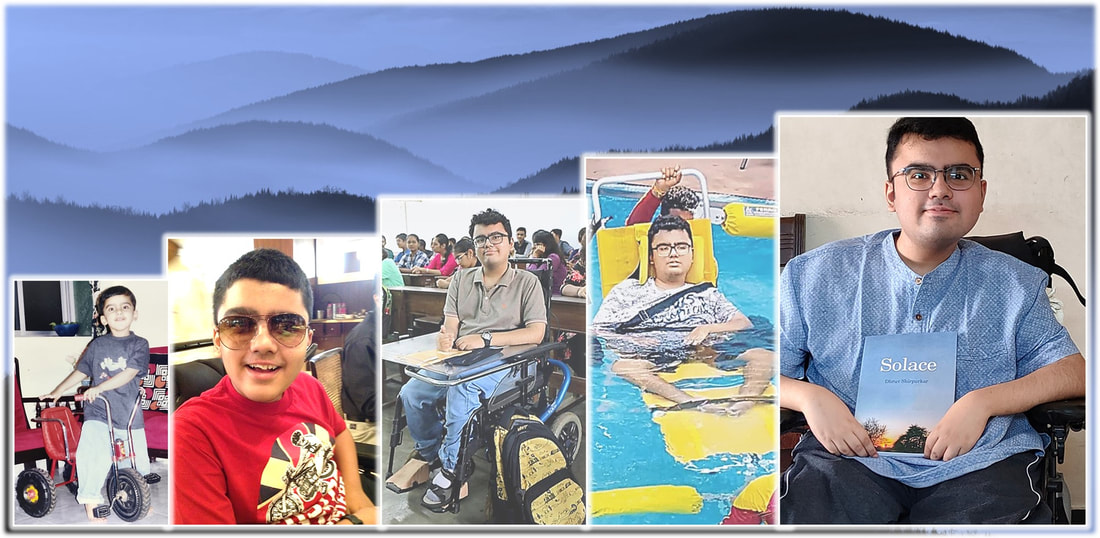
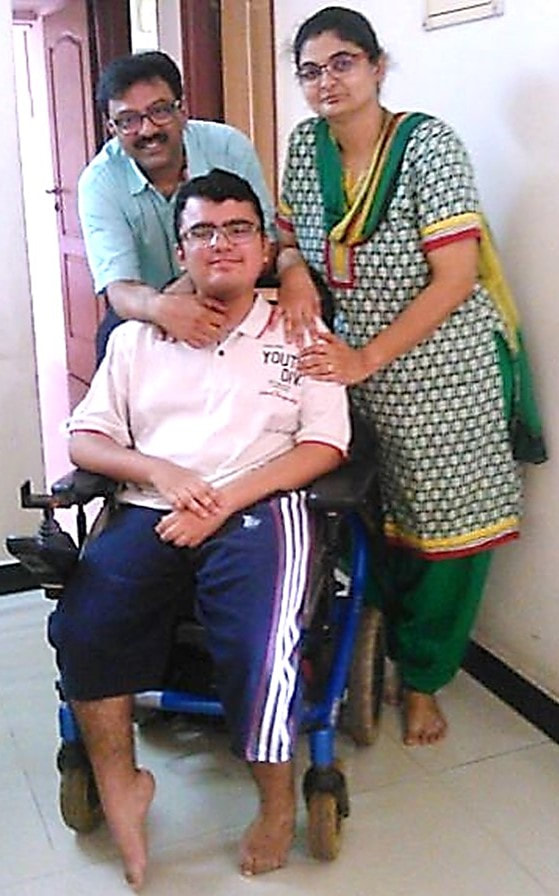
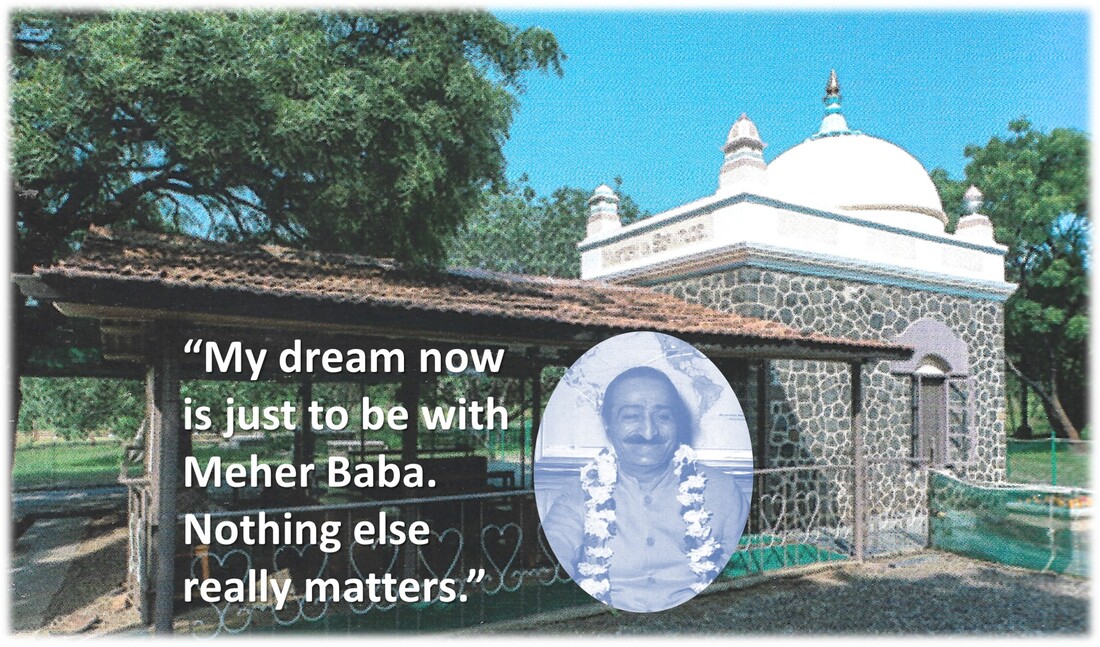

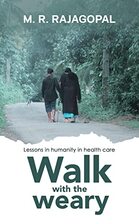
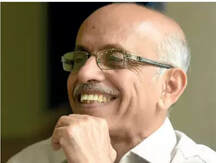
 RSS Feed
RSS Feed

